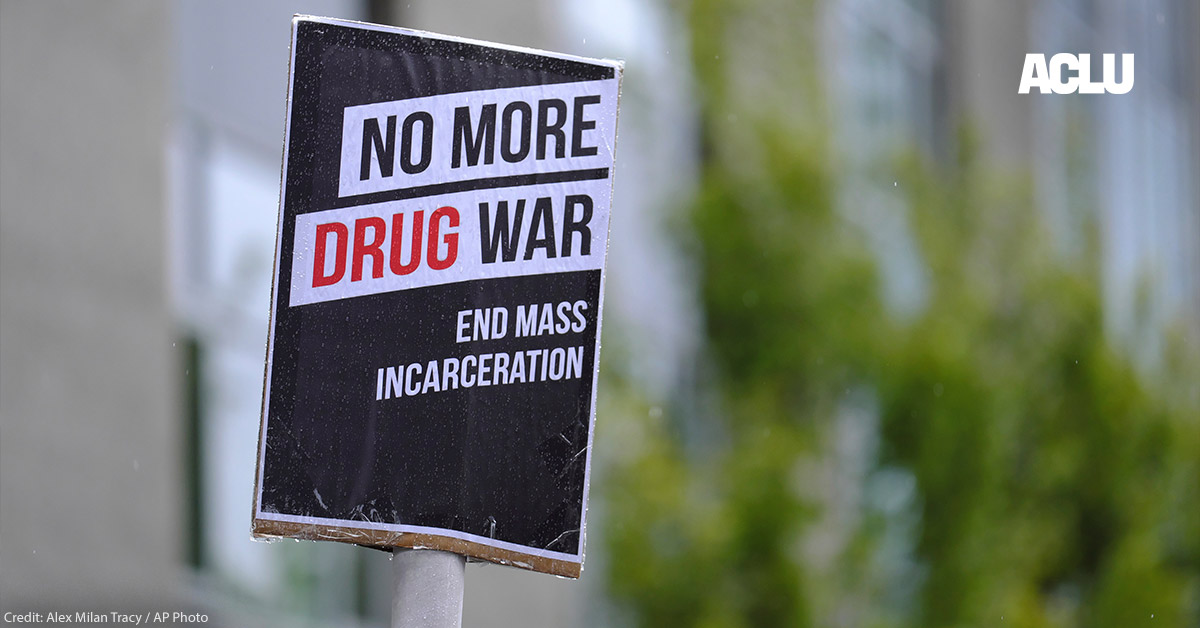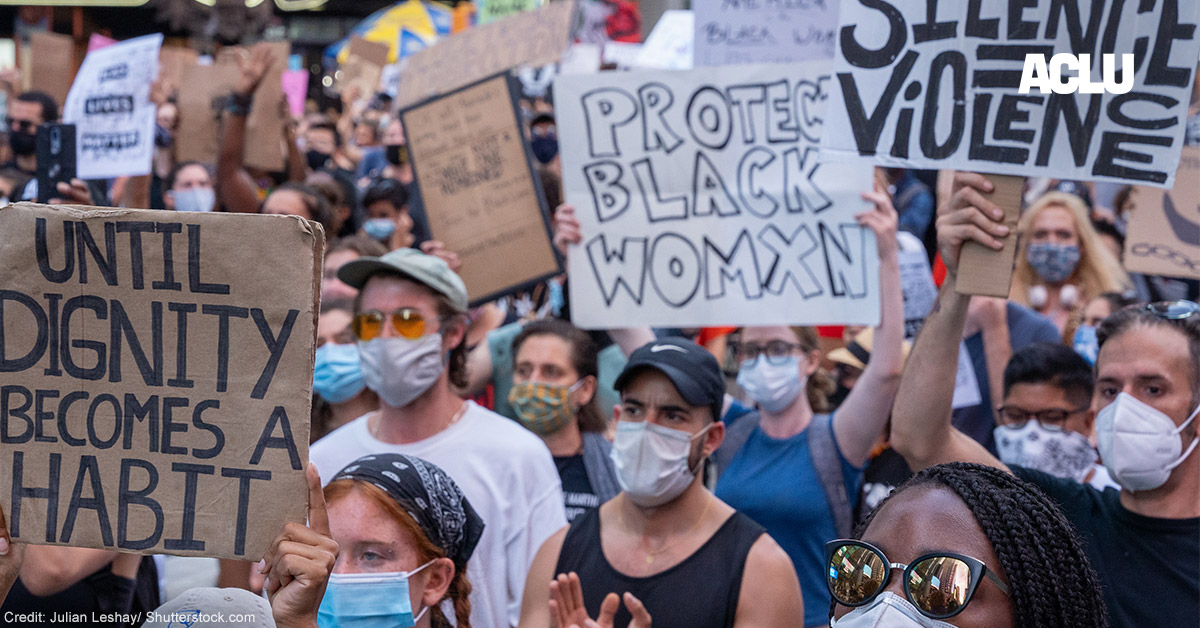By Udi Ofer, Director, ACLU Justice Division & Jeffery Robinson, ACLU Deputy Legal Director and Director of the Trone Center for Justice and Equality
Millions of people took to the streets this year demanding racial justice and an end to racism in policing and the criminal legal system more broadly. On Election Day, voters provided their own stamp of approval by passing ballot measures in red and blue states alike to reform drug policy and other laws that have led to our mass incarceration crisis. Prosecutors and sheriffs committed to tackling mass incarceration won elections from Florida and Michigan to Texas and California.
In fact, it is fair to say that a future Biden-Harris administration has a mandate to fight against mass incarceration. An Associated Press poll from June found that 94 percent of Americans believe that the criminal justice system needs to change — including a large majority of Republicans — and 69 percent of Americans support major changes or a complete overhaul of the system.
President-elect Biden and Vice President-elect Harris have already indicated that they will make racial justice a priority in their administration, including by reforming the criminal legal system. This is welcomed. The ACLU believes that now is the moment for bold action to tackle this crisis. The U.S. leads the world in incarceration and in police violence. Now is the time for visionary steps to end mass incarceration.
Here is our top to-do list for the first 100 days:
End the War on Drugs
A Biden-Harris administration should issue an executive order declaring an end to the war on drugs, directing federal prosecutors to no longer pursue drug cases, commuting the sentences of people serving time for drug-related cases, and pardoning people with past criminal convictions for drug-related offenses. Moreover, the administration should support reform bills like the MORE Act, which would remove marijuana from the list of scheduled substances, expunge many past convictions and arrests, and support racial justice efforts.
Grant Mass Clemency
The Executive has complete authority to grant clemency or demand the initiation of a mass clemency process, either of which President-elect Joe Biden could do in his first 100 days in office. Doing so would show he is serious about ending this country’s mass incarceration crisis and addressing the harms caused — disproportionately against Black and Brown people — by the 1994 crime bill and other failed “tough on crime” policies. There are tens of thousands of people who could be released within the first 100 days, by granting categorical clemency to the following groups:
1. People who would serve a lesser sentence than they are currently serving if convicted under current laws;
2. People convicted of drug offenses;
3. People incarcerated for technical probation or parole violations; and
4. Older incarcerated people.
And for everyone who is granted clemency, it is incumbent on leaders across the federal government and in local communities to thoughtfully and holistically support people leaving prison.
Embrace Use of Force Standard
An important first step in reining in police use of force is to set clear national standards, requiring all police departments to adhere to common-sense limitations and best practices based on principles of necessity, proportionality, and de-escalation. Notably, research has found that when police departments adopt such policies, they not only kill fewer people, but also suffer fewer officer deaths in the line of duty.
President-elect Biden has already identified the creation of a national, model use-of-force standard as one of his racial equity priorities. It’s important that this use-of-force standard truly conforms to the best practices in the field by embracing the principles set forth in the PEACE Act, which permit officers to use force only when necessary, proportional, and less extreme alternatives are exhausted.
Dramatically Reduce Pretrial Detention
The federal system, which rarely uses cash bail, should be a model for states and localities. But the federal pretrial detention rate is an appalling 75 percent. The Biden-Harris DOJ must seek detention for only the most extreme cases and aim for a pretrial detention rate no higher than 5 percent, instruct prosecutors to make charging decisions that avoid presumptions of detention, and invest in supportive services — such as transportation and child care assistance to make it easier for people to attend their court dates — instead of bias-enforcing risk assessment tools that do not address the underlying problems. The administration should also support legislation to eliminate presumptions of detention, which violate the basic tenant that people are innocent until proven guilty.
In encouraging local reform, the administration should align with these same principles and focus on funding evidence-based support rather than discriminatory algorithms or onerous conditions.
End Private Prisons
Criminal justice policy should be driven by public safety needs, not by the greed of private corporations. But more than 100,000 people in the United States are incarcerated in private prisons, where profit-seeking takes priority over safety, security, and rehabilitation. In 2016, the Obama administration announced that it would end the use of private prisons by the federal Bureau of Prisons, but that order was reversed in the early days of the Trump administration. The Biden administration should end the use of private prisons by the Bureau of Prisons, the U.S. Marshals Service, and all other federal agencies.
End the Federal Death Penalty
The federal death penalty is plagued by racial bias, geographic arbitrariness, and unfairness — just like the death penalty in the states. The Biden-Harris administration must honor its pledge to work toward federal legislation to end the federal death penalty. The Trump administration recklessly carried out an unprecedented number of federal executions, all during the pandemic, leading to spikes in COVID-19 cases and subjecting staff, witnesses, loved ones of the victims, and people incarcerated in federal prisons alike to escalated risk of the disease. The Biden-Harris administration should immediately suspend all federal executions while it works to end the federal death penalty once and for all.
End Solitary Confinement
The United States is the world’s leader in solitary confinement, with tens of thousands of men, women, and children locked in isolation on any given day. Although international human rights standards require that solitary confinement be used only as a last resort and for no more than 15 days, it’s common for people in U.S. prisons to be isolated for months, years, and even decades. The Obama administration enacted limited reforms at the federal level, but much more needs to be done. The Biden administration should ban solitary confinement lasting longer than 15 days for people in federal custody, and create incentives for states and localities to do the same.

